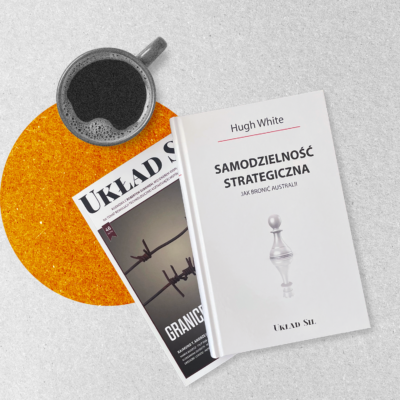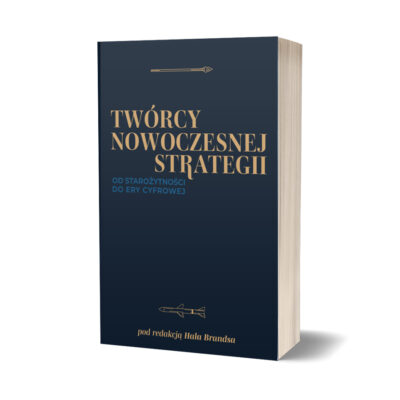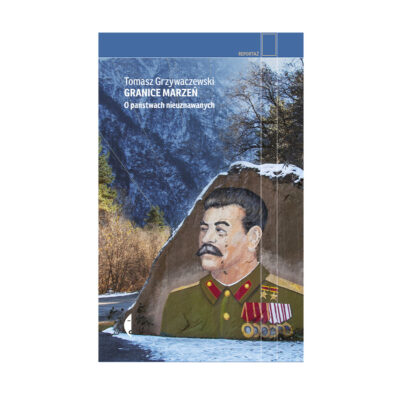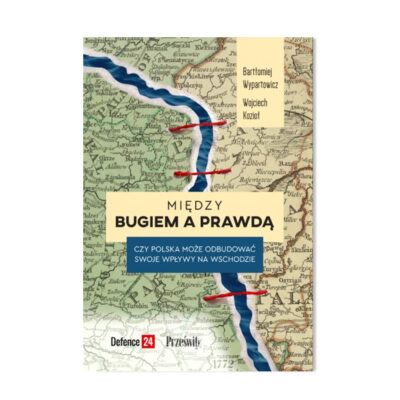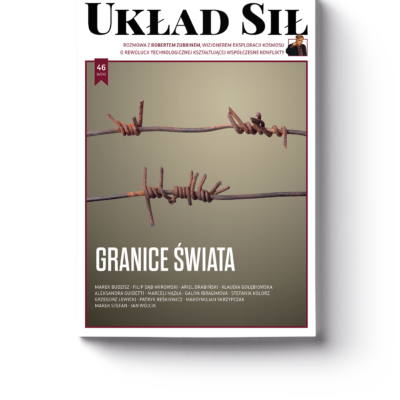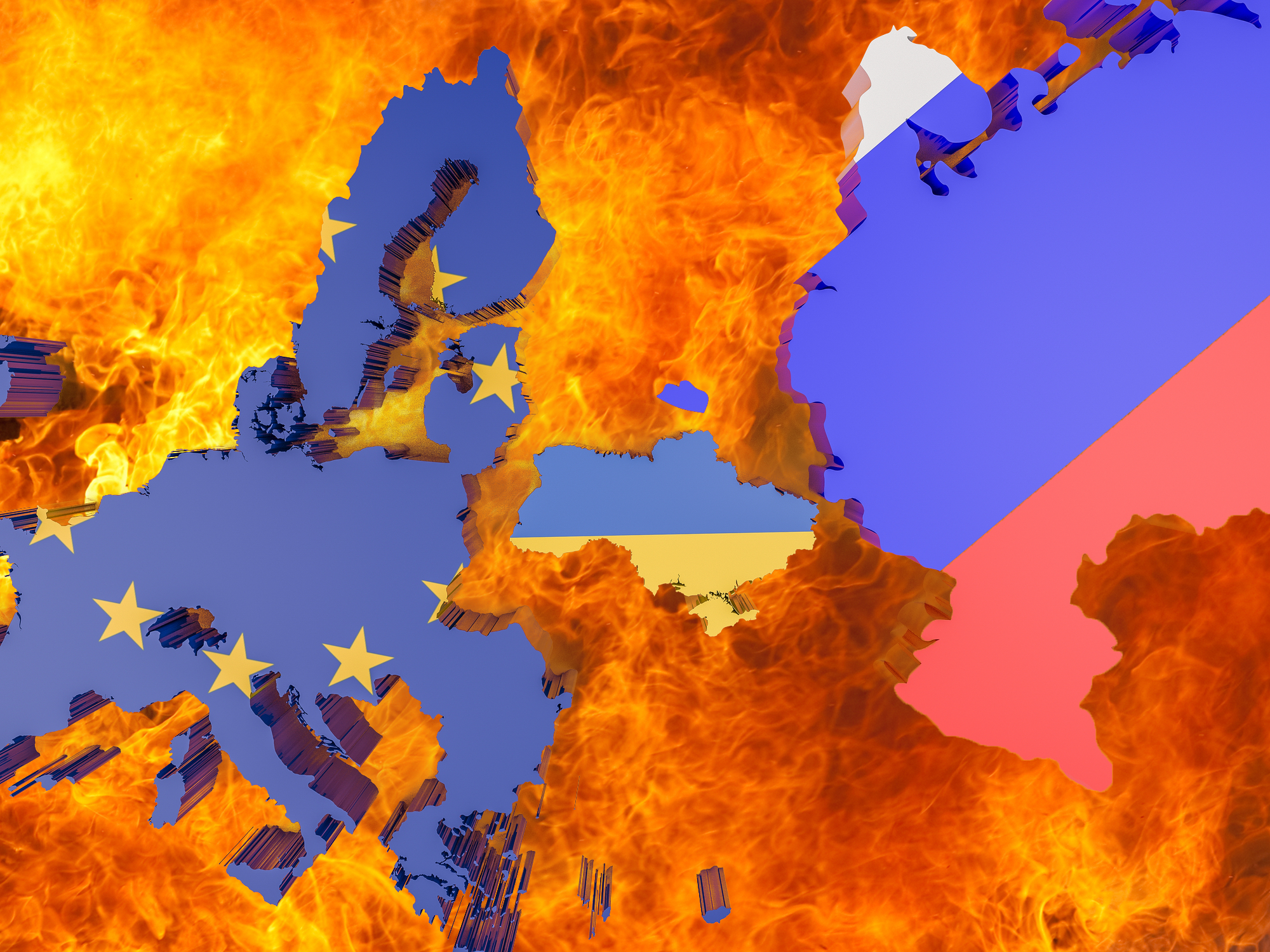
ENGLISH VERSION BELLOW
Agresja Rosji na Ukrainę a przyszłość Unii Europejskiej
Rozmowa z Mihai Sebe, doktorem nauk politycznych, ekspertem koordynującym studia europejskie w European Institute of Romania
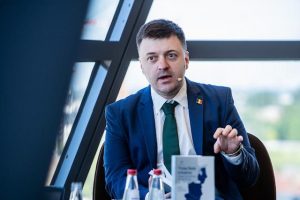 Jak wojna na Ukrainie może wpłynąć na przyszłość procesu integracyjnego UE?
Jak wojna na Ukrainie może wpłynąć na przyszłość procesu integracyjnego UE?
Wojna na Ukrainie ma duży wpływ na przyszłość integracji UE na więcej niż jeden sposób. Najbardziej znaczącym skutkiem jak dotąd była historyczna decyzja przywódców UE o przyznaniu Ukrainie i Republice Mołdawii statusu kraju kandydującego. Stanowi to potwierdzenie strategicznej wartości polityki rozszerzenia i silny sygnał geopolityczny, gdyż UE chce mieć istotny wpływ na swoje sąsiedztwo.
Konferencja nt. Przyszłości Europy jasno określiła potrzebę skonsolidowanej i zjednoczonej Unii Europejskiej, Unii bardziej odpornej wewnętrznie i zewnętrznie, mocnej, bezpiecznej, skutecznej Unii Europejskiej, która będzie nadal zapewniać swoim obywatelom dobrobyt i bezpieczeństwo.
W tym celu potrzebna jest rozsądna i dojrzała refleksja, a szereg państw członkowskich UE, w tym Rumunia, chce dalej rozważyć wszystkie możliwe opcje, zanim dojdzie do przedwczesnej ich zdaniem próby zmiany Traktatu. Następnym logicznym krokiem powinno być usprawnienie tego, co już działa.
Agresja Rosji na Ukrainę nie może odwracać uwagi od tak potrzebnego procesu optymalizacji, ani też być pretekstem do zaniechania niezbędnych reform.
Ważne jest również, aby nie zaniedbywać krajów kandydujących z regionu Bałkanów Zachodnich. Dla każdego z tych państw otwiera się indywidualna ścieżka, która będzie musiała być wyznaczona postępem na każdym wymaganym kamieniu milowym, który oczywiście jest inny dla każdego z krajów. Każdy kraj kandydujący musi iść własną drogą, w zależności od konkretnych problemów, które należy rozwiązać. Istnieją różne okoliczności i te różne okoliczności z pewnością mogą prowadzić do różnych tempa procesu akcesyjnego.
Czy różnice między krajami Europy Wschodniej i Zachodniej w zakresie wsparcia udzielanego Ukrainie doprowadzą do trwałego podziału między członkami UE? Co jest główną przyczyną tych różnic?
Unia Europejska zawsze była wierna swojemu mottu „Zjednoczona w różnorodności” i jest to więcej niż oczywiste, jako że odnosi się do Ukrainy. Państwa członkowskie zjednoczyły się, by działać na rzecz pokoju na Ukrainie, a jednocześnie wiele różnych doświadczeń narodowych odcisnęło swoje piętno na tym, jak to zrobić. Zawsze istniały różne spojrzenia na przyszłość Europy, co na przykład pokazał przebieg obrady Konferencji nt. Przyszłości Europy i zawsze prowadziliśmy nieustanny proces negocjacyjny w celu znalezienia optymalnego rozwiązania, do którego każdy może się odnieść. W tym celu nawet dyskusje, które wydawały się niemożliwe do zamknięcia, znalazły rozwiązanie i tak będzie i w tym przypadku. Już sam fakt, że państwa członkowskie UE zdecydowały się przyznać Ukrainie i Republice Mołdawii status kraju kandydującego, jest sygnałem, że w razie potrzeby UE działa jako całość.
Czy Zachód, a zwłaszcza kraje członkowskie UE, utrzymają sankcje nałożone na Rosję pomimo pogarszającej się sytuacji gospodarczej w Europie, spowodowanej głównie wzrostem cen energii?
Wszystkie przyjęte do tej pory sankcje uzyskały szerokie poparcie państw członkowskich w wyniku ścisłego procesu negocjacji. Ten proces negocjacyjny stanowi główny czynnik gwarantujący stabilność reżimu sankcji – nie zostały one nałożone jednostronnie, ale zostały uzgodnione przez wszystkich. W tym celu klauzula solidarności, oznaczająca, że w przypadku, gdy jedno lub kilka państw członkowskich znajduje się w trudniejszej sytuacji z powodu sankcji, inne państwa członkowskie i instytucje UE udzielą wsparcia, ma zasadnicze znaczenie dla ich spójności. Przykładowo, w przypadku nagłego zakłócenia dostaw ropy, czy to rurociągiem, czy drogą morską, państwa członkowskie powinny działać w duchu solidarności i współpracy regionalnej. To zobowiązanie do solidarności i współpracy ma szczególne znaczenie w obliczu rosyjskiej agresji na Ukrainę.
Czy rosyjska inwazja na Ukrainę może trwale wpłynąć na podejście państw UE do kwestii bezpieczeństwa oraz wydatków wojskowych i na bezpieczeństwo?
Nawet jeśli może to zabrzmieć banalnie, faktem jest, że świat zmienił się radykalnie od początku rosyjskiej agresji na Ukrainę. Jesteśmy świadkami dramatycznego wzrostu wydatków wojskowych w tym regionie, przy zastosowaniu środków i działań, które przed 24 lutego wydawały się jedynie hipotetyczne. Agresja Rosji na Ukrainę spowodowała zwrócenie uwagi na znaczenie wydatków wojskowych i na bezpieczeństwo, które w nieodległej przyszłości raczej nie zaniknie. Dopóki trwa agresja, jakiekolwiek zmniejszenie tego zainteresowania jest wysoce nieprawdopodobne.
W dłuższej perspektywie musimy być bardziej zjednoczeni, mieć lepszą współpracę wojskową i w zakresie bezpieczeństwa między państwami członkowskimi i musimy wykazać się spójnością. Musimy również lepiej współpracować z instytucjami europejskimi i koordynować działania z naszymi partnerami, zwłaszcza ze Stanami Zjednoczonymi Ameryki, NATO i Wielką Brytanią. Konieczna jest dyskusja na temat bardziej strategicznego podejścia Unii Europejskiej do kwestii bezpieczeństwa oraz wydatków wojskowych i na bezpieczeństwo.
Czy Plan Odbudowy i Rozwoju dla Ukrainy przyjęty w Lugano stworzy szansę i ramy dla przeprowadzenia gruntownych reform instytucjonalnych i gospodarczych na Ukrainie?
Dokument końcowy Konferencji Odbudowy Ukrainy URC2022 „Deklaracja z Lugano” wyraźnie wskazuje na znaczenie powiązania wczesnej i długoterminowej odbudowy Ukrainy z europejską perspektywą Ukrainy i statusem kraju kandydującego do UE. Główne zasady procesu odbudowy Ukrainy, tak zwane „zasady z Lugano”, mogą w rzeczywistości stanowić niezbędny plan wdrożenia gruntownych reform instytucjonalnych i gospodarczych na Ukrainie.
Wysiłki na rzecz odbudowy Ukrainy po zakończeniu konfliktu stanowią priorytet dla Rumunii, Unii Europejskiej i podobnie myślących państw.
Rumunia tradycyjnie była jednym z najbardziej zagorzałych zwolenników europejskiej orientacji i aspiracji Ukrainy oraz Republiki Mołdowy. Droga przed nami jest długa i wymagająca, dlatego musimy dzielić się całym naszym doświadczeniem i udzielać pełnego wsparcia Ukrainie i Republice Mołdawii na ich europejskiej drodze.
Jak wspomnieli przedstawiciele Rumunii, musimy również pamiętać, że fundamentalnym aspektem odbudowy Ukrainy jest kompleksowe podejście. Istotne są kwestie materialne, takie jak infrastruktura i gospodarka, jednakże kwestie związane z wartościami – reformy, rządy prawa, tolerancyjne, integracyjne i otwarte społeczeństwo – pozostają niezbędne dla sprawnego funkcjonowania państwa i społeczeństwa. Wartości te faktycznie i strategicznie skonsolidują Ukrainę, mocno i nieodwracalnie zakotwiczając ją w demokratycznej wspólnocie europejskiej.
Rozmawiał Paweł Ziorko
Russia’s aggression against Ukraine and the future of the European Union
Rozmowaz Mihai Sebe, PhD in Political Sciences, is an expert in European affairs currently coordinating the European Studies at the European Institute of Romania.
 How in your opinion the war in Ukraine may affect the future of EU integration process?
How in your opinion the war in Ukraine may affect the future of EU integration process?
The war in Ukraine is having a great influence on the future of EU integration in more ways than one. The most remarkable consequence so far has been the historical decision of the EU leaders of granting the candidate country status to Ukraine and the Republic of Moldova. It represents a confirmation of the strategic value of the enlargement policy and a strong geopolitical signal as the EU wants to have a substantial say in its neighbourhood.
The Conference on the Future of Europe made clear the need for a consolidated and united European Union, for a more resilient Union internally and externally, for a solid, safe, efficient European Union that will continue to provide the premises for its citizens’ well-being and security.
For that purpose, a sound and mature reflection is needed, and a series of EU Member States, including Romania, want to further explore all the possible options before what they consider to be a premature attempt for Treaty changes. Improving what already works should be the next logical step.
Russia’s aggression against Ukraine must not serve as a distraction for the much needed optimization process, nor should it be used as a pretext for not making the necessary reforms.
It is important also not to neglect the candidate countries from the Western Balkans. For each of these states, an individual path opens, which will have to be marked by progress on each required milestone, which is obviously different for each of the countries. Every candidate country must go their own way, depending on their specific problems that need to be solved. There are different circumstances, and these different circumstances can certainly lead to different tempos in this accession process.
Will the differences between Eastern and Western Europe’s countries in support provided to Ukraine result in a permanent division between the EU members? What in your opinion is the main cause of those differences?
The European Union has always been true to its motto „United in diversity”, and this is more than obvious as it regards Ukraine. The Member States have come together to work for peace in Ukraine while at the same time the many different national experiences have put their mark on how to do that. There have always been different perspectives on the future of Europe, as revealed for instance by the proceedings of the Conference on the Future of Europe, and we have always had a constant negotiation process in order to find the optimal solution to which everyone can relate. For that purpose even debates that seemed to be impossible to overcome have found a solution and this will be the case also here. The fact itself that the EU Member States have decided to grant the candidate status to Ukraine and the Republic of Moldova represents a signal that the EU acts as a whole when needed.
In your opinion will the West, particularly the EU member countries, keep the sanctions imposed on Russia in place despite the deteriorating economic situation in Europe, which is mainly due to the surge of energy prices?
All the adopted sanctions so far have been widely supported by the Member States following a close negotiation process. This negotiation process represents the main factor that would guarantee the stability of the sanctions regime – they were not imposed unilaterally, but were agreed by all. For that purpose a solidarity clause, meaning that in case one or several Member State(s) has/have a more difficult situation due to the sanctions, the other Member States and EU institutions would provide their support, is essential for their cohesion. For instance in the event of a sudden disruption of oil supplies, whether by pipeline or seaborne, Member States should act in a spirit of solidarity and regional cooperation. This commitment to solidarity and cooperation is of particular relevance in view of Russia’s aggression against Ukraine.
Can the Russian invasion in Ukraine permanently affect the EU countries’ approach to the issue of security and military and security expenses?
Even if it may sound like a cliché, the fact is that the world has changed radically since the start of Russia’s aggression against Ukraine. We have witnessed a dramatic increase in military spending in the region, with measures and actions that before 24 February seemed only hypothetical. Russia’s aggression against Ukraine has generated a focus on the importance of military and security expenses which is unlikely to dissipate in the foreseeable future. As long as the aggression is going on, any reduction of this interest is highly unlikely.
In the long term, we must be more united, have a better military and security collaboration between the Member States and we must show cohesion. We also need to collaborate better with the European institutions and coordinate with our partners, especially with the United States of America, NATO, and the United Kingdom. A discussion regarding a more strategic approach of the European Union regarding the issue of security, and military and security expenses is necessary.
In your opinion will the Recovery and Development Plan for Ukraine adopted in Lugano provide an opportunity and a framework for the implementation of thorough institutional and economic reforms in Ukraine?
The outcome document of the Ukraine Recovery Conference URC2022 ‘Lugano Declaration’ clearly stipulates the importance of linking Ukraine’s early to long-term recovery to Ukraine’s European perspective and EU candidate country status. The Guiding principles for Ukraine’s recovery process, the so-called ‘Lugano Principles’, can provide in fact the needed blueprint for the implementation of thorough institutional and economic reforms in Ukraine.
Ukraine’s recovery and post-conflict reconstruction efforts represent a priority for Romania, the European Union and like-minded states.
Romania has traditionally been one of the most outspoken supporters of the European orientations and aspirations of Ukraine and the Republic of Moldova. The road ahead is long and demanding, and we need to share all our experience and provide all our support to Ukraine and the Republic of Moldova on their European path.
by Pawel Ziorko

